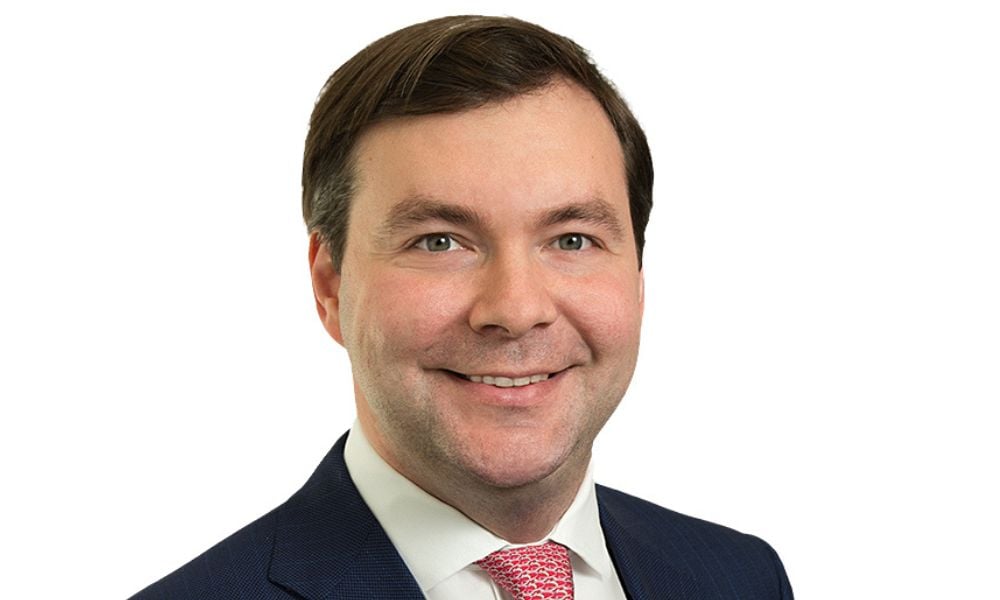

Investors are grappling with the incoming Trump administration and the potential implications for radically different policies affecting fixed income.
Andrzej Skiba, head of US fixed income at RBC Global Asset Management, highlighted the risks and opportunities ahead. While RBC anticipated a Trump win, the Republican sweep of Congress caught many market participants offguard, he said. This political dynamic has already had an impact on fixed income markets.
“All branches of Congress and the executive power is now in Republican hands. That had an impact on treasury markets with the steepening of the curve. The fact that yields have moved 10 to 15 basis points higher, depending where you are on the curve, was pretty much in line with our expectations for that outcome,” Skiba said.
The market will be “in a bit of a limbo” for now, ahead of the Fed's likely rate cut next month, he said.
“We do think the Fed will cut another 25 [basis points] in December, but from then onwards, it is very much a possibility that the Fed takes a pause, and the market will really want to know how aggressive Trump wants to go on the tariff side."
The key risk factor for fixed income investor is the potential for an escalating trade war, he said. With Canada and Mexico facing potential 25 percent tariffs, the trade war has already begun, which could have significant implications for the Federal Reserve's monetary policy in the new year.
“Ten-percent tariffs on most trade partners and most goods would clearly be quite inflationary. We see up to 1 percent increase in headline inflation. One percent doesn't sound like a lot, but for the Fed, it can make all the difference between being able to cut rates in 2025 or not,” he said.
A full-on trade war could mean the Fed won’t cut rates at all, he said. A diluted version of a trade war could mean potential rate cuts, but likely fewer than the four in the September release of the Fed’s dot plots.
“In any case, it's an environment where you want to be careful in terms of going overweight duration in the US until you have more clarity,” he said. “It's not ‘get out of fixed income and stay out of fixed income.’ Investors want to get to a point where all the news is in the price and we'll have clarity on the trade policy, on fiscal policy, and how the Fed is thinking about it.”
Not all the news is grim for fixed income investors. Short duration assets look good “in any scenario,” Skiba said. If investors look at spread in credit markets, different maturity points are trading, and as a result “aren’t getting extra spread by going from a three-year bond, 10-year bond or even a 30-year bond."
Leveraged loans are another area that could perform well, given the expectation of a higher-for-longer interest rate environment, he said. Additionally, the increased volatility that often accompanies policy changes under the Trump administration could create opportunities for active managers to capitalize on dislocations in the market.
"The good news is that sitting close to home in your fixed income exposures is not a horrible place to be, because the yield of the asset class is much higher than it was in previous years, so you're getting paid to sit on your hands and watch as things unfold," he said.
The short-term goal for investors is to remain flexible and avoid making aggressive directional bets until there is more clarity on the new administration's policy agenda, he said.
"Stay light on your feet.”

Looking to refine your strategy for investing in stocks in the US market? Discover expert insights, key trends, and risk management techniques to maximize your returns

Driven by robust transaction activity amid market turbulence and increased focus on billion-dollar plus targets, Echelon Partners expects another all-time high in 2025.

The looming threat of federal funding cuts to state and local governments has lawmakers weighing a levy that was phased out in 1981.

The fintech firms' new tools and integrations address pain points in overseeing investment lineups, account monitoring, and more.

Canadian stocks are on a roll in 2025 as the country prepares to name a new Prime Minister.
RIAs face rising regulatory pressure in 2025. Forward-looking firms are responding with embedded technology, not more paperwork.
As inheritances are set to reshape client portfolios and next-gen heirs demand digital-first experiences, firms are retooling their wealth tech stacks and succession models in real time.
